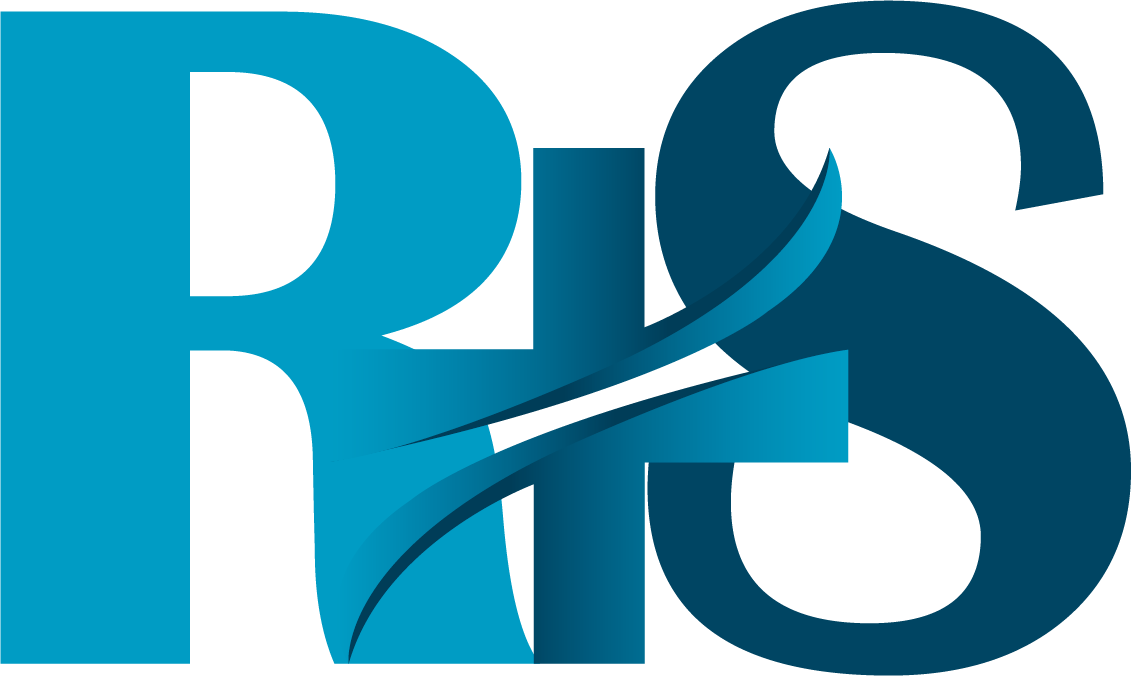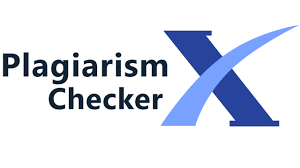Depression, anxiety, stress and consumption of psychoactive substances post Covid among medical students of the Universidad del Valle Cochabamba-Bolivia, 2022
DOI:
https://doi.org/10.52428/20756208.v18i44.468Keywords:
Depression, anxiety, students.Abstract
Introduction. The Covid-19 pandemic had an important impact on the mental health and well-being of society, particularly in young university students. The objective is evaluate the impact of mental health on the consumption of psychoactive substances between medical students of the Universidad del Valle, Bolivia.
Methods: A quantitative study was used. Online surveys were used through Forms. The Depression, Anxiety, Stress Scale (DASS-21) was used to assess the emotional states after the Covid-19 pandemic, and was used questions related to behavior of psychoactive substances from the validated questionnaire CoPaQ (Corona Pandemie Questionnaire).
Results. It was found that after the pandemic and the measures taken, 60% of medical students have depression, 60% anxiety, and 34% stress. As a result of the analysis between the variable severe/extremely severe mental health problems, it can be asserted that there is a statistically significant relationship with the variables: sex (p 0.026), nationality (p 0.03), patients in psychotherapy therapies (p 0 .0036); also with the consumption of alcohol (p 0.0089), cigarettes (p 0.028) and consumption of drugs such as tranquilizers, sleeping pills, stimulants (p 0.006639).
Discussion and Conclusions. The study collects information on the impact of mental health on medical students at Universidad del Valle after the pandemic, identifying the behaviors developed that should be addressed in university programs.
Downloads
References
Estadísticas del COVID-19 - Proyecto Rodillo [Internet]. Proyecto Rodillo - El termómetro del coronavirus en Latinoamérica. [citado 8 de abril de 2023]. Disponible en: https://rodillo.org/estadisticas-covid-19/
Strategic Preparedness, Readiness and Response Plan to End the Global COVID-19 Emergency in 2022 - World | ReliefWeb [Internet]. 2022 [citado 8 de abril de 2023]. Disponible en: https://reliefweb.int/report/world/strategic-preparedness-readiness-and-response-plan-end-global-covid-19-emergency-2022
Serafini G, Parmigiani B, Amerio A, Aguglia A, Sher L, Amore M. The psychological impact of COVID-19 on the mental health in the general population. QJM. 22 de junio de 2020;113(8):531-7.
https://doi.org/10.1093/qjmed/hcaa201 DOI: https://doi.org/10.1093/qjmed/hcaa201
Bekele F, Mechessa DF, Sefera B. Prevalence and associated factors of the psychological impact of COVID-19 among communities, health care workers and patients in Ethiopia: A systematic review. Ann Med Surg (Lond). junio de 2021;66:102403.
https://doi.org/10.1016/j.amsu.2021.102403 DOI: https://doi.org/10.1016/j.amsu.2021.102403
Factors Influencing Compliance with Quarantine in Toronto During the 2003 SARS Outbreak [Internet]. [citado 8 de abril de 2023]. Disponible en: https://www.liebertpub.com/doi/epdf/10.1089/bsp.2004.2.265
Varatharaj A, Thomas N, Ellul M, Davies NWS, Pollak T, Tenorio EL, et al. UK-Wide Surveillance of Neurological and Neuropsychiatric Complications of COVID-19: The First 153 Patients [Internet]. SSRN: Amsterdam, Netherlands. (2020). Amsterdam, Netherlands: SSRN
https://doi.org/10.2139/ssrn.3601761
[citado 8 de abril de 2023]. Disponible en: https://dx.doi.org/10.2139/ssrn.3601761
https://doi.org/10.2139/ssrn.3601761 DOI: https://doi.org/10.2139/ssrn.3601761
Woo MS, Malsy J, Pöttgen J, Seddiq Zai S, Ufer F, Hadjilaou A, et al. Frequent neurocognitive deficits after recovery from mild COVID-19. Brain Commun. 2020;2(2):fcaa205.
https://doi.org/10.1093/braincomms/fcaa205 DOI: https://doi.org/10.1093/braincomms/fcaa205
de Erausquin GA, Snyder H, Carrillo M, Hosseini AA, Brugha TS, Seshadri S, et al. The chronic neuropsychiatric sequelae of COVID-19: The need for a prospective study of viral impact on brain functioning. Alzheimers Dement. junio de 2021;17(6):1056-65.
https://doi.org/10.1002/alz.12255 DOI: https://doi.org/10.1002/alz.12255
Mazza MG, Palladini M, De Lorenzo R, Magnaghi C, Poletti S, Furlan R, et al. Persistent psychopathology and neurocognitive impairment in COVID-19 survivors: Effect of inflammatory biomarkers at three-month follow-up. Brain Behav Immun. mayo de 2021;94:138-47.
https://doi.org/10.1016/j.bbi.2021.02.021 DOI: https://doi.org/10.1016/j.bbi.2021.02.021
Czeisler MÉ, Lane RI, Petrosky E, Wiley JF, Christensen A, Njai R, et al. Mental Health, Substance Use, and Suicidal Ideation During the COVID-19 Pandemic - United States, June 24-30, 2020. MMWR Morb Mortal Wkly Rep. 2020;1049-57.
https://doi.org/10.15585/mmwr.mm6932a1 DOI: https://doi.org/10.15585/mmwr.mm6932a1
Bolivia: La salud mental registró 69.303 casos en 2021 [Internet]. La Razón. [citado 8 de abril de 2023]. Disponible en: https://www.la-razon.com/sociedad/2022/09/12/bolivia-la-salud-mental-registro-69-303-casos-en-2021/
Siete RDP. Pandemia: consultas por salud mental se dispararon en 2020 [Internet]. www.paginasiete.bo. [citado 8 de abril de 2023]. Disponible en: https://www.paginasiete.bo/sociedad/pandemia-consultas-por-salud-mental-se-dispararon-en-2020-HBPS311611
Mejia Orozco A, González Hernández N, Marchena Gamarra H. Prevalencia de consumo de alcohol, tabaco y otras sustancias en estudiantes universitarios: La situación de la comunidad Andina (Colombia, Bolivia, Ecuador y Perú). Duazary: Revista internacional de Ciencias de la Salud. 2011;8(1):60-6.
Javes JAV. Depresión de los estudiantes universitarios durante la pandemia COVID-19: Revisión de literatura científica 2020 - 2022. Ciencia Latina Revista Científica Multidisciplinar. 2022;6(6):13042-59.
https://doi.org/10.37811/cl_rcm.v6i6.4311 DOI: https://doi.org/10.37811/cl_rcm.v6i6.4311
Peréz-Pérez M, Fernández-Sánchez H, Enríquez-Hernández CB, López-Orozco G, Ortiz-Vargas I, Gómez-Calles TJ, et al. Estrés, ansiedad, depresión y apoyo familiar en universitarios mexicanos durante la pandemia de COVID-19. Revista Salud Uninorte. diciembre de 2021;37(3):553-68.
https://doi.org/10.14482/sun.37.3.616.98 DOI: https://doi.org/10.14482/sun.37.3.616.98
Ocho de cada 10 adolescentes pasan angustia, depresión y ansiedad, pero no buscan apoyo psicológico [Internet]. [citado 8 de abril de 2023]. Disponible en: https://www.unicef.org/bolivia/comunicados-prensa/ocho-de-cada-10-adolescentes-pasan-angustia-depresi%C3%B3n-y-ansiedad-pero-no-buscan
Maynaza VH. Salud mental en los estudiantes de la Universidad Privada del Valle, sede La Paz, en el marco de la COVID-19. Revista Compás Empresarial. 31 de diciembre de 2022;13(35):99-122.
https://doi.org/10.52428/20758960.v13i35.267 DOI: https://doi.org/10.52428/20758960.v13i35.267
Alarcón RD. La Salud Mental de los estudiantes universitarios. Revista Médica Herediana. 2019;30(4):219-21.
https://doi.org/10.20453/rmh.v30i4.3655 DOI: https://doi.org/10.20453/rmh.v30i4.3655
Morales ASM. DIEZ AÑOS DE INVESTIGACIÓN EN LA UAM.
Rek SV, Bühner M, Reinhard MA, Freeman D, Keeser D, Adorjan K, et al. The COVID-19 Pandemic Mental Health Questionnaire (CoPaQ): psychometric evaluation and compliance with countermeasures in psychiatric inpatients and non-clinical individuals. BMC Psychiatry. 31 de agosto de 2021;21(1):426.
https://doi.org/10.1186/s12888-021-03425-6 DOI: https://doi.org/10.1186/s12888-021-03425-6
Antony MM, Bieling PJ, Cox BJ, Enns MW, Swinson RP. Psychometric properties of the 42-item and 21-item versions of the Depression Anxiety Stress Scales in clinical groups and a community sample. Psychological Assessment. junio de 1998;10(2):176-81.
https://doi.org/10.1037/1040-3590.10.2.176 DOI: https://doi.org/10.1037/1040-3590.10.2.176
Velástegui Mendoza MA, Touriz Bonifaz MA, Cando Caluña W, Herrera Tutiven JD. Depresión y Ansiedad en Universitarios por Covid-19. Polo del Conocimiento: Revista científico - profesional. 2022;7(2):71.
Emiro Restrepo J, Castañeda Quirama T, Zambrano Cruz R, Emiro Restrepo J, Castañeda Quirama T, Zambrano Cruz R. SINTOMATOLOGÍA DE DEPRESIÓN Y ANSIEDAD EN ESTUDIANTES UNIVERSITARIOS COLOMBIANOS DURANTE LA PANDEMIA COVID-19. Ciencia y enfermería [Internet]. 2022 [citado 8 de abril de 2023];28. Disponible en: http://www.scielo.cl/scielo.php?script=sci_abstract&pid=S0717-95532022000100216&lng=es&nrm=iso&tlng=es
https://doi.org/10.29393/CE28-19SDJR30019 DOI: https://doi.org/10.29393/CE28-19SDJR30019
López CQ, Vera VDG. Depresión en estudiantes universitarios derivada del Covid-19: un modelo de clasificación. Cuadernos Hispanoamericanos de Psicología. 10 de septiembre de 2021;21(1):1-15.
https://doi.org/10.18270/chps..v21i1.3712 DOI: https://doi.org/10.18270/chps..v21i1.3712
Leonangeli S, Michelini Y, Montejano GR. Depresión, Ansiedad y Estrés en Estudiantes Universitarios Antes y Durante Los Primeros Tres Meses de Cuarentena por COVID-19. Revista Colombiana de Psiquiatría [Internet]. 27 de mayo de 2022 [citado 8 de abril de 2023]; Disponible en: https://www.sciencedirect.com/science/article/pii/S0034745022000567
https://doi.org/10.1016/j.rcp.2022.04.008 DOI: https://doi.org/10.1016/j.rcp.2022.04.008
Beltrán Vizcaino FA. Factores relacionados con el uso de sustancias psicoactivas en jóvenes universitarios: revisión integrativa de literatura. 2022 [citado 8 de abril de 2023]; Disponible en: https://repository.udca.edu.co/handle/11158/4975
Arancibia M, Rojo A. COVID-19 y consumo de sustancias: revisión narrativa de la evidencia disponible. Rev chil neuro-psiquiatr. 2021;142-51.
https://doi.org/10.4067/s0717-92272021000200142 DOI: https://doi.org/10.4067/s0717-92272021000200142

Published
How to Cite
Issue
Section
License
Copyright (c) 2023 Liseth Arias, MR, MISS, MISS

This work is licensed under a Creative Commons Attribution 4.0 International License.
Authors who publish with this journal agree to the following terms:
- Authors retain copyright and grant the journal right of first publication with the work simultaneously licensed under a Creative Commons Attribution License 4.0 that allows others to share the work with an acknowledgement of the work's authorship and initial publication in this journal.
- Authors are able to enter into separate, additional contractual arrangements for the non-exclusive distribution of the journal's published version of the work (e.g., post it to an institutional repository or publish it in a book), with an acknowledgement of its initial publication in this journal.
- Authors are permitted and encouraged to post their work online (e.g., in institutional repositories or on their website) prior to and during the submission process, as it can lead to productive exchanges, as well as earlier and greater citation of published work.






















